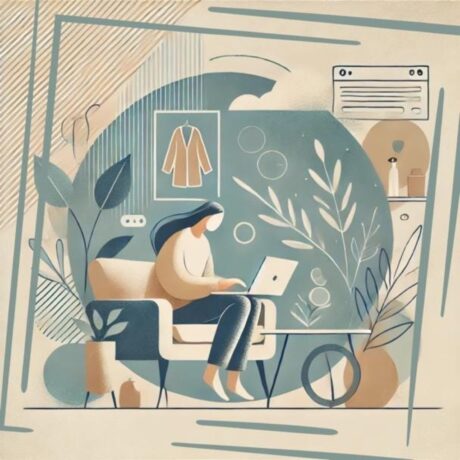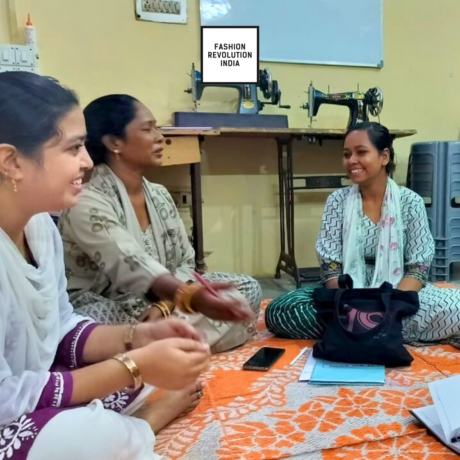Garment Worker Voices from CARE International
CARE International is a humanitarian organisation fighting global poverty, with a focus on women and girls. From garment factory workers in South East Asia to domestic workers in Latin America, CARE is standing by vulnerable female workers to fight for safety, respect and equality. CARE believes that everybody, everywhere, has the right to work free from violence and harassment. But in 1/3 of countries, sexual harassment at work isn’t even against the law. This leaves nearly 235 million women vulnerable each day. CARE International’s global #ThisIsNotWorking campaign is calling on governments to vote for a binding international convention on ending violence and harassment at work. CARE also works with brands and garment factories to develop best practice for preventing and responding to sexual harassment in the workplace.
Below are two perspectives of garment workers from Myanmar and Laos, who told their stories to CARE International as part of Fashion Revolution’s #WhoMadeMyClothes campaign.
Khaing (33) – Myanmar

Khaing (33) helps support her family of six by working as a sewing machine operator in a garment factory in Myanmar. She has worked there since 2012 and enjoys the job, but is sick and tired of the harassment that the women workers face on a daily basis.
“Women feel unsafe because the male workers sometimes try to touch and hold them,” she says.
“I feel uncomfortable whenever the supervisor scolds us using rude words, when the mechanics sit and stare at the female workers and tease or make jokes about girls. Especially on Saturdays when they are wearing beautiful dresses.”
“I want to continue working in the factory. But sometimes I don’t want to go to work and I am upset by this. I don’t want my wages to be cut off if I don’t go to work.”
“I would like to be free from violence and discrimination in my workplace.”
Passionate about improving workplace conditions, Khaing become the trade union leader in her factory, and is now the President of the Women’s Committee within the Confederation of Trade Unions in Myanmar (CTUM).
“I teach other workers about sexual harassment and violence in the workplace at CTUM Women’s Centre. It is good practice to tell workers that sexual harassment is not acceptable. Women will feel safer in the workplace if managers tell this to the workers.”
Khaing says one of the biggest problems is changing the culture, as protection from harassment at work is not enshrined in law, so perpetrators often face no consequences and survivors receive no justice:
“There are no specific laws addressing sexual harassment and violence in the workplace in our country. Because of a lack of legal protection, there have been negative consequences for survivors of assault and harassment.”
As the workers’ representative, Khaing even travelled to Geneva, Switzerland in June 2018 to attend the International Labour Organisation (ILO) conference on Violence and Harassment in the World of Work, so she could learn more about improving conditions in her factory, and in her country.
“I am committed, as workers’ representative, to continue my efforts to lobby for the development of specific laws and policies to address violence and sexual harassment in the workplace.”
Hanlee (27) – Laos

Hanlee, 27, earns money working at a garment factory in Laos. She started out operating a sewing machine before becoming responsible for checking the products that come off the assembly line.
Hanlee dreams of opening her own sewing shop, but right now feels she has no choice other than to continue working at the factory to earn money. Sometimes she feels safe at work, but not always.
“It can be hard to be a woman. At work, sometimes there is sexual harassment like staring and rude comments.”
Hanlee feels most unsafe at the garment factory dormitory. She has no option but to live there because her home is far away.
“Once, the HR officer visited a female worker at the dormitory when she was sick and he harassed her,” Hanlee recounts.
He was fired, but Hanlee was still worried that something like this could happen to her.
“If I felt sick, I was scared about staying in the dormitory alone. Others who have relatives nearby go to stay with them if they are sick. If I had to stay at the dormitory alone I locked myself in my room.”
Her factory is now taking steps to stop sexual harassment from occurring.
“The factory talked about the importance of preventing of violence and harassment in the workplace and shared how they will respond to any cases that happen. If someone causes violence, they will be warned or fired,” she says.
“We feel safer and we also feel that management are concerned about us and our safety.”
***
CARE is working with the garment industry in four countries across South-East Asia to help make workplaces safer for women. We’re also calling for strong global legislation to ensure women are protected from sexual harassment in and around their work. Learn more about CARE’s work to address sexual harassment in the garment industry in South-East Asia: https://www.care.org.au/stop








